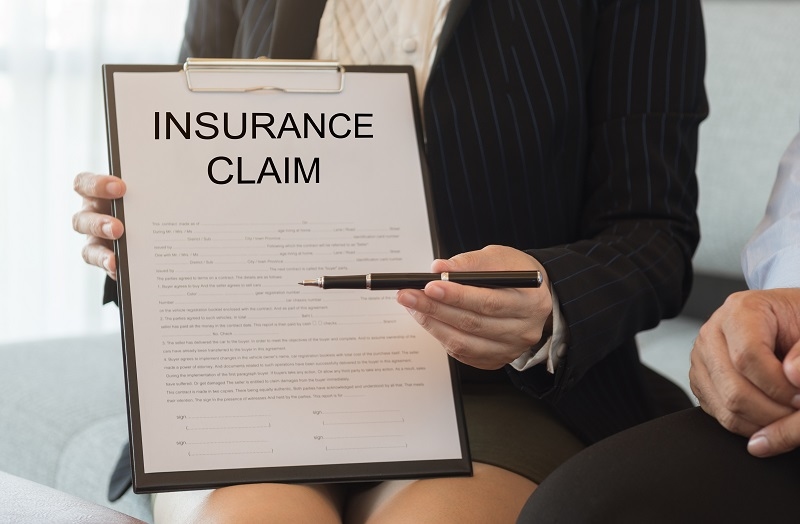
Experiencing loss—like your home damaged, a car in a crash, or having your stuff stolen—is tough both emotionally and financially. Insurance should help, but getting all the money you should get isn't easy. Many find out too late that they get less money than they hoped, often because they didn't do the right things when making their claim.
Knowing how to get the most out of an insurance claim is key for anyone looking to save their money after a bad surprise.
By knowing your policy well, writing down damage correctly, and talking well in talks, you can increase your chances of getting the money you really deserve:
First, know all that is in your policy. Most just skim the papers when they get them and then shove them aside. That works until trouble hits, and you need to know what is covered, what’s not, and how much you might get.
Here are things to look for in your policy:
Knowing this stuff puts you in a good spot when it's time to negotiate coverage claim because you’ll know what you can rightly ask for.
Proof is key in a claim. The more you show, the less the insurance can fight your ask.
After a loss:
Snap lots of photos and videos from all sides. If it’s a home, get the outside, inside, and close looks at the hurt spots.
If you want to increase settlement offer, think like the person checking your claim—ask, “What would make me believe this loss is real and as bad as they say?”
Time matters a lot in claims. Policies often have time limits to report losses, and missing these can mess with your money. Claiming fast also keeps the proof new and stops the insurer from saying the damage got worse because you waited.
For instance, if a pipe breaks in your home, telling them fast ties the break to the hurt. Wait a week, and they might say the mold that popped up could have been stopped. Being quick is a simple way to get more from your insurance claim.
The adjuster has a big part in your payout. They check out the site, size up the damage, and make up a cost that helps set the insurer’s offer.
Adjusters are pros, but they work for the insurance firm. They look to save money where they can. Here are tips for higher insurance payout to keep on top of your claim:
If the adjuster’s price seems low, show them higher quotes from other contractors. This is a straightforward way to push for more money.
A strong move to back your case is to get your own pro to check the damage. This matters a lot in home claims where fix costs can swing a lot.
For example, if your roof gets hit in a storm, the adjuster might say just patch it, but an outside roofer might say it needs a new one. Having these extra quotes puts you on solid ground for coverage talks.
Insurers sometimes give a quick payout to wrap up a claim fast. While tempting—especially if you need cash now—saying yes too soon can cost you later.
Some hurts take time to show fully. Water damage, for example, might hide its worst until mold shows up weeks later. Once you sign off, you usually can't ask for more money later.
Patience is key if you want the most from your insurance claim. Wait until all checks are done and the full harm is clear.

Being neat is key. A claim log is a simple book or file where you write down:
This record makes things clear and helps you see if the insurer is on time. It shows you mean business, which can help if you're aiming for more money from your insurance.
A big thing that changes payouts is how your plan prices your stuff:
If your plan includes replacement cost, make sure your payoff shows that. Insurers sometimes start with ACV and want you to show proof of buying a new item to pay more. Knowing this is key to getting a bigger payout.
For hard claims—like big property damage, business stops, or bad car crashes—you might want an expert.
Two usual choices are:
Though they charge fees (often by taking a part of the payout), their know-how can lead to a much better deal than going it alone.
Many miss out on the fact that insurance often pays for added costs from a loss. Examples would be:
Save all receipts. Showing them can greatly maximize insurance claim payout.
It's normal to get mad with insurance delays or small offers. But losing your cool or sending mad texts can hurt your case.
Talk neatly every time. Check on things that aren't resolved. If someone said they'd call by Thursday and didn’t, ring them Friday. Staying on it shows you are watching and want what you deserve.
If your insurer says no or offers too little, don't quit. Read the refusal note well, compare it to your plan, and collect proof to fight their choice.
Some places let you appeal formally. Even without a fixed system, you can ask again in writing with proof. This can help push your payout up.
While you can't see all the losses, it certainly could be planned for:
Planning can make your next claim easier to max out.
Insurance is meant to protect you, but it doesn't guarantee simple and complete payments. What you will receive depends on how familiar you are with your policy, how you document your losses, and how you manage conversations.
These steps can turn a tough time into a real win and make sure you get what you should. With plans and pushing on, you’ll be set to get a fair and full deal.
This content was created by AI